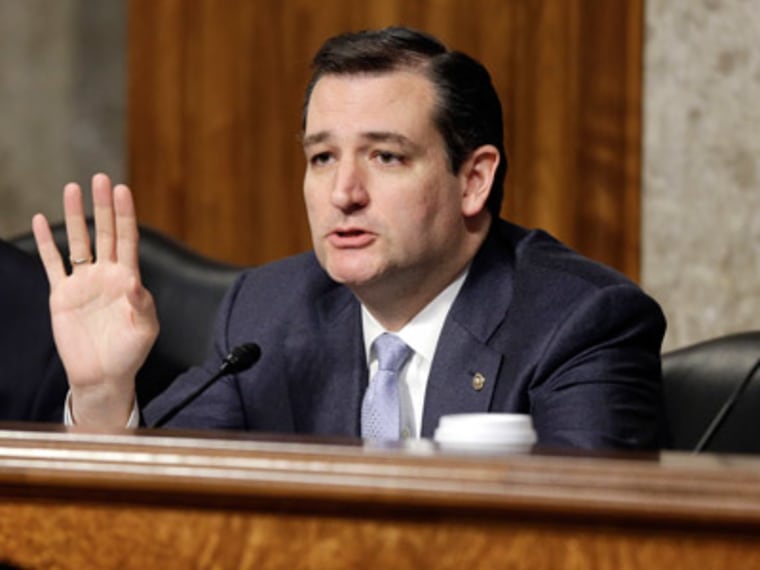A version of this story originally appeared on NBC Latino.
It’s up to the Republicans. Whether a comprehensive immigration reform bill will reach President Obama’s desk this year boils down to one fundamental thing–whether enough Republicans will support it or not. From what we saw Thursday on the first day of the Senate Judiciary Committee’s markup hearings, that is where the debate on immigration will center–it will be Republican supporters of the bill like Senator Marco Rubio versus Republicans who oppose key parts of the bill like Senator Ted Cruz.
“There are no guarantees in the Senate; a senator can leverage influence and stop a bill, case in point the gun bill,” says Arizona State University political scientist Rodolfo Espino. “On immigration, Democrats are pretty united in what they want, but the nature of the bill will be largely determined by factions within the Republican party and whether they resolve or not resolve their differences,” Espino adds.
On Thursday morning it was key Republicans like South Carolina Senator Lindsey Graham, who made the case that it was time to legalize 11 million undocumented citizens “on our terms not theirs.” Graham was trying to convince fellow Republican colleagues that the current bill “will do more to control illegal employment than any idea I’ve seen.” The South Carolina senator is one of four Republicans, along with Florida Senator Marco Rubio, Colorado Senator Michael Bennet, and Arizona Senator John McCain, who have taken on a key leadership role in drafting the immigration reform bill as part of the group of senators known as the "Gang of Eight."
One of the linchpins of the bill is a pathway to citizenship for undocumented immigrants. While Senator Rubio has shed his previous opposition to this and has already been criticized by some of his conservative base for his position, fellow Republican Senator Ted Cruz tacked completely the other way.
Today, the Tea Party Texan introduced an amendment “to remove the pathway to citizenship for those who are here illegally.” Cruz argued that keeping this provision would “scuttle the bill” and cause it to fail to pass in the House.
Cruz’ remarks were swiftly condemned. "I guess Senator Cruz feels that someone must boldly stand against the tide of history, point backwards, and say ‘follow me,’" said Democratic Congressman Luis Gutierrez, chair of the Congressional Hispanic Caucus Immigration Task Force. Texas Democratic Congressman and CHC Chair Congressman Ruben Hinojosa said it was “disturbing that Sen. Ted Cruz refuses to move past abstract, extremist rhetoric and see immigration reform in real terms.”
The next few weeks will reveal how Republicans work out their support—or opposition—to the bill in the Senate. Moving forward to what happens in the more conservative House, “one of the key issues is who will send a stronger signal to the Tea Party faction, Senator Rubio or Senator Cruz,” says Arizona State’s Espino. While Cruz does have a lot of power with the Tea Party base, Espino explains, there are Tea Party conservatives like Rubio and Senator Rand Paul who have come out in support of reform.
Nathan Gonzales, deputy editor of the The Rothenberg Political Report, says that having more Republicans and more groups supporting immigration reform gives more “cover” for Republican members to support it–or at least tacitly support it without casting a vote. “It could give (House) Speaker Boehner flexibility to bring about immigration legislation even though it looks like a deeply divided caucus,” Gonzales says.
As to whether taking the plunge and supporting immigration reform with a pathway to citizenship- as Senator Rubio has done – ends up being a better strategy than Cruz, "we’ll have a clear test in 2015 and 2016,” says Gonzales. "The next presidential primary will be the ultimate test of who correctly gauged the issue, at least with the GOP.”
